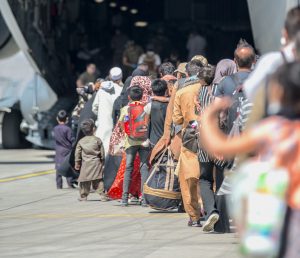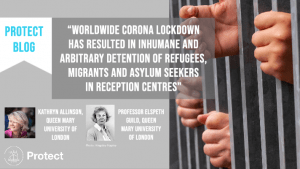by Kathryn Allinson, Lecturer in Law, University of Bristol

Afghans constitute the second largest refugee population in the world with 2.6 million Afghan refugees registered globally. After almost continuous armed conflict since 1978, many of these individuals are in a ‘protracted refugee situation’ having been in refugee camps for over 40 years without access to what the United Nations High Commissioner for Refugees (UNHCR) calls ‘durable solutions’ (resettlement, return or local integration – see UNHCR Global Trends Report 2018 p.22 and 27). However, the recent escalation in the crisis in Afghanistan has seen the numbers of people being displaced reaching over 330,000 since the start of this year, according to UNHCR. Numbers of newly displaced persons are expected to rise to 500,000 over the coming weeks. (more…)

